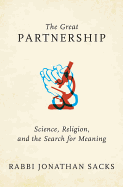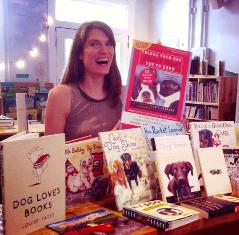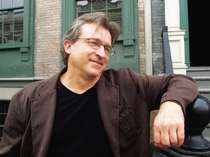 Phil Cousineau is an independent filmmaker, photographer, worldwide lecturer, adventure travel guide and a television host for Global Spirit, a 10-part series currently airing on PBS. He has published more than 25 books, including The Art of Pilgrimage, The Hero's Journey: The Life and Work of Joseph Campbell, Stoking the Creative Fires and The Olympic Odyssey: Rekindling the Spirit of the Ancient Games. His latest book, The Painted Word (with artwork by Gregg Chadwick), to be published by Viva Editions on September 11, 2012, is his follow-up to Wordcatcher: An Odyssey into the Weird and Wonderful World of Words. He is a Fellow of the Joseph Campbell Foundation and lives with his family in San Francisco, where he coaches youth baseball.
Phil Cousineau is an independent filmmaker, photographer, worldwide lecturer, adventure travel guide and a television host for Global Spirit, a 10-part series currently airing on PBS. He has published more than 25 books, including The Art of Pilgrimage, The Hero's Journey: The Life and Work of Joseph Campbell, Stoking the Creative Fires and The Olympic Odyssey: Rekindling the Spirit of the Ancient Games. His latest book, The Painted Word (with artwork by Gregg Chadwick), to be published by Viva Editions on September 11, 2012, is his follow-up to Wordcatcher: An Odyssey into the Weird and Wonderful World of Words. He is a Fellow of the Joseph Campbell Foundation and lives with his family in San Francisco, where he coaches youth baseball.
On your nightstand now:
Memories Look at Me by Tomas Tranströmer. This short book by the Nobel Prize winner was written after he endured a stroke that left him bereft of speech. It is lyrically beautiful and almost agonizingly clear in its confrontation with life and death, all inspired by jewel-like anecdotes about growing up in Sweden. Helen of Troy by Bettany Hughes. This long but eloquent and controversial book has provided a great deal of academic background for my own upcoming Who Stole the Arms of the Venus de Milo?, which is why I've read it twice. Video Nights in Kathmandu by Pico Iyer. I reread one of Pico Iyer's travel books every year in preparation for my participation in the best travel writing conference in the country, the one staged by Book Passage, in Corte Madera, Calif.
Favorite book when you were a child:
Adventures of Huckleberry Finn by Mark Twain. We read this book out loud as a family and then took a road trip to Hannibal, Mo., so we could visit the small town where Twain grew up. This book taught me about the beauty of spoken speech rendered as it is, not as it should be.
Your top five authors:
Mark Twain, for the above reasons. James Joyce, because he was Irish-Catholic like me and taught me about the possibilities of reinventing the English language. Milan Kundera, for his sensuality mixed with politics. Philip Levine, for mythologizing the Detroit factory life, where I spent four years during college. James Salter, for being the Best Unknown Novelist in the world, and the sexiest.
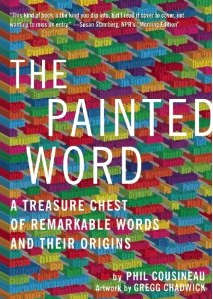 Book you've faked reading:
Book you've faked reading:
A Brief History of Time by Stephen Hawking, which I began three times but could never finish. Whenever I refer to the book, I say that I tried but couldn't finish it. My old friend, mythologist Joseph Campbell, once advised me, "Never finish a book that bores you. There are too many other marvelous books in the library."
Book you're an evangelist for:
Jack Gilbert's Collected Poems. His poems are pellucid, clear as the Greek mornings where most of them were written, and unsentimental, a rare quality in poets.
Book you've bought for the cover:
The University of California Press edition of Moby Dick with the gorgeous woodcut. I already have three other editions, including the one I inherited from my father, but just had to have that one.
Book that changed your life:
James Joyce's Portrait of an Artist as a Young Man, because I was living in Dublin in the mid-1970s and trying to decide between going home to Detroit and staying in Ireland. An elderly Irish woman in the B&B where I was staying made me some tea and scones and handed me a copy of Joyce's Portrait, saying, "You need to read this." She was right. I stayed in Ireland.
Favorite line from a book:
"The heaventree of stars hung with humid, nightblue fruit." --From Ulysses by James Joyce.
"I want to do to you what spring does to the cherry blossoms." --Pablo Neruda, from the love sonnets.
Book you most want to read again for the first time:
A Sport and a Pastime by James Salter. I reread this book almost every year and every time I wish I had just stumbled across it, say, in Shakespeare and Company bookstore, where I first found it.
Book you suggest beginning writers to read:
Becoming a Writer by Dorothea Brande, circa 1939. This is the most encouraging and yet unapologetically tough primer for writers I've ever come across. This is a book for writers who are unsure if they should write or if they have anything to say; she says if you are unsure, don't write. If you really something to say, let it in, let it out.
Book you recommend for beginning journalists:
Who Stole the News? by Mort Rosenblum. The truest, most impassioned book available today on the realities of journalism, in print and on the Internet. Rosenblum was an A.P. correspondent for almost 40 years and editor of the International Herald Tribune. If you want a history and a prophecy about the future of reporting, read this book.
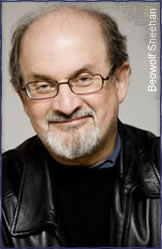 "I have never ceased to be grateful for what the independent booksellers of America did in 1989 and, now that I have finally been able to tell the full story of that battle, I am glad to be able to honor your courage and give you all your due, both in the pages of my book and in what I will say about it when it is published. This is just to thank you personally. It was a privilege to be defended by you, and I have been trying, and will continue to try, to be worthy of that defense."
"I have never ceased to be grateful for what the independent booksellers of America did in 1989 and, now that I have finally been able to tell the full story of that battle, I am glad to be able to honor your courage and give you all your due, both in the pages of my book and in what I will say about it when it is published. This is just to thank you personally. It was a privilege to be defended by you, and I have been trying, and will continue to try, to be worthy of that defense."








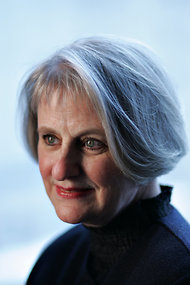 Fasten your e-seatbelts. Yesterday federal district court judge Denise Cote approved the settlement the Justice Department reached with three of the five publishers that it sued, along with Apple, charging collusion in the adoption of the agency model for e-book pricing. The changes are supposed to go into effect in one week, but Apple, which is contesting the Justice Department suit, has said it will appeal approval of the settlement. Amazon has indicated that it will return to aggressive price discounts, which in many cases meant $9.99 for e-book versions of new hardcover titles.
Fasten your e-seatbelts. Yesterday federal district court judge Denise Cote approved the settlement the Justice Department reached with three of the five publishers that it sued, along with Apple, charging collusion in the adoption of the agency model for e-book pricing. The changes are supposed to go into effect in one week, but Apple, which is contesting the Justice Department suit, has said it will appeal approval of the settlement. Amazon has indicated that it will return to aggressive price discounts, which in many cases meant $9.99 for e-book versions of new hardcover titles. 
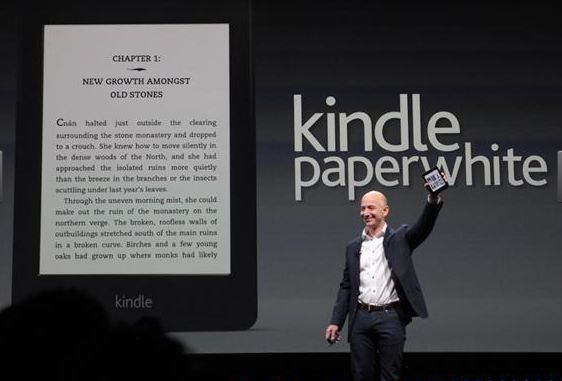 Jeff Bezos took the stage in an airport hangar in Santa Monica, Calif., yesterday to announce a range of new
Jeff Bezos took the stage in an airport hangar in Santa Monica, Calif., yesterday to announce a range of new  Ingram Content Group will be the exclusive distributor of Kobo e-readers to American Booksellers Association members as part of the
Ingram Content Group will be the exclusive distributor of Kobo e-readers to American Booksellers Association members as part of the 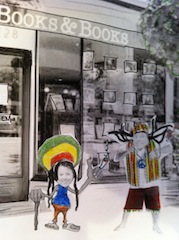 After a summer of Jack McKeown playing a lot of reggae over the sound system in Books & Books Westhampton Beach, N.Y., younger staff "took their revenge," he wrote, in the form of the cartoon (at r.) depicting him and co-owner Denise Berthiaume in rasta regalia. In addition, summer staffer Rachel Whittemore, safely on her way back to college, wrote lyrics for a song called "No Reggae, No Cry," to be sung to the tune of Bob Marley's "No Woman, No Cry."
After a summer of Jack McKeown playing a lot of reggae over the sound system in Books & Books Westhampton Beach, N.Y., younger staff "took their revenge," he wrote, in the form of the cartoon (at r.) depicting him and co-owner Denise Berthiaume in rasta regalia. In addition, summer staffer Rachel Whittemore, safely on her way back to college, wrote lyrics for a song called "No Reggae, No Cry," to be sung to the tune of Bob Marley's "No Woman, No Cry."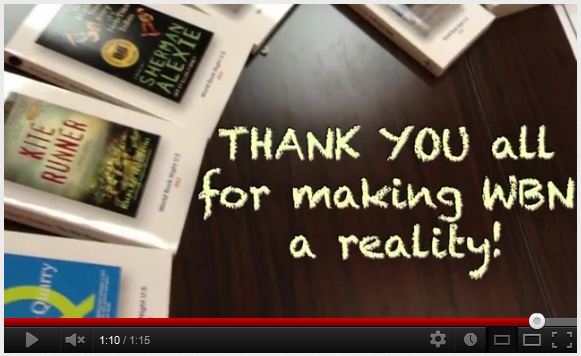
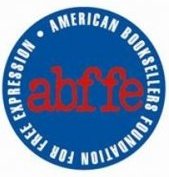 The
The 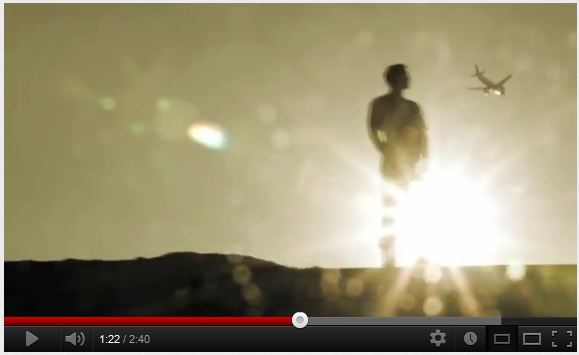 Unwholly
Unwholly
 Book you've faked reading:
Book you've faked reading: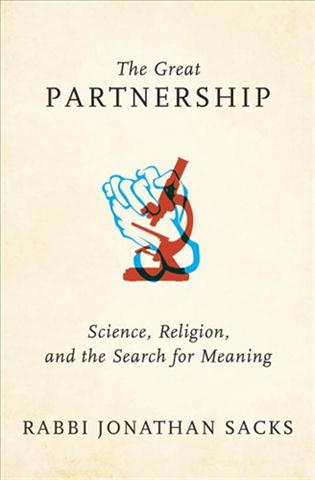 Near the end of The Great Partnership, Jonathan Sacks, chief rabbi of the U.K.'s main Orthodox movement, admits his aim is not to convert the most ardent supporters of "new atheists" like Richard Dawkins and the late Christopher Hitchens. Instead, he offers serious readers an examination of the most profound issues of faith and science that is both intellectually rigorous and generous in spirit.
Near the end of The Great Partnership, Jonathan Sacks, chief rabbi of the U.K.'s main Orthodox movement, admits his aim is not to convert the most ardent supporters of "new atheists" like Richard Dawkins and the late Christopher Hitchens. Instead, he offers serious readers an examination of the most profound issues of faith and science that is both intellectually rigorous and generous in spirit.